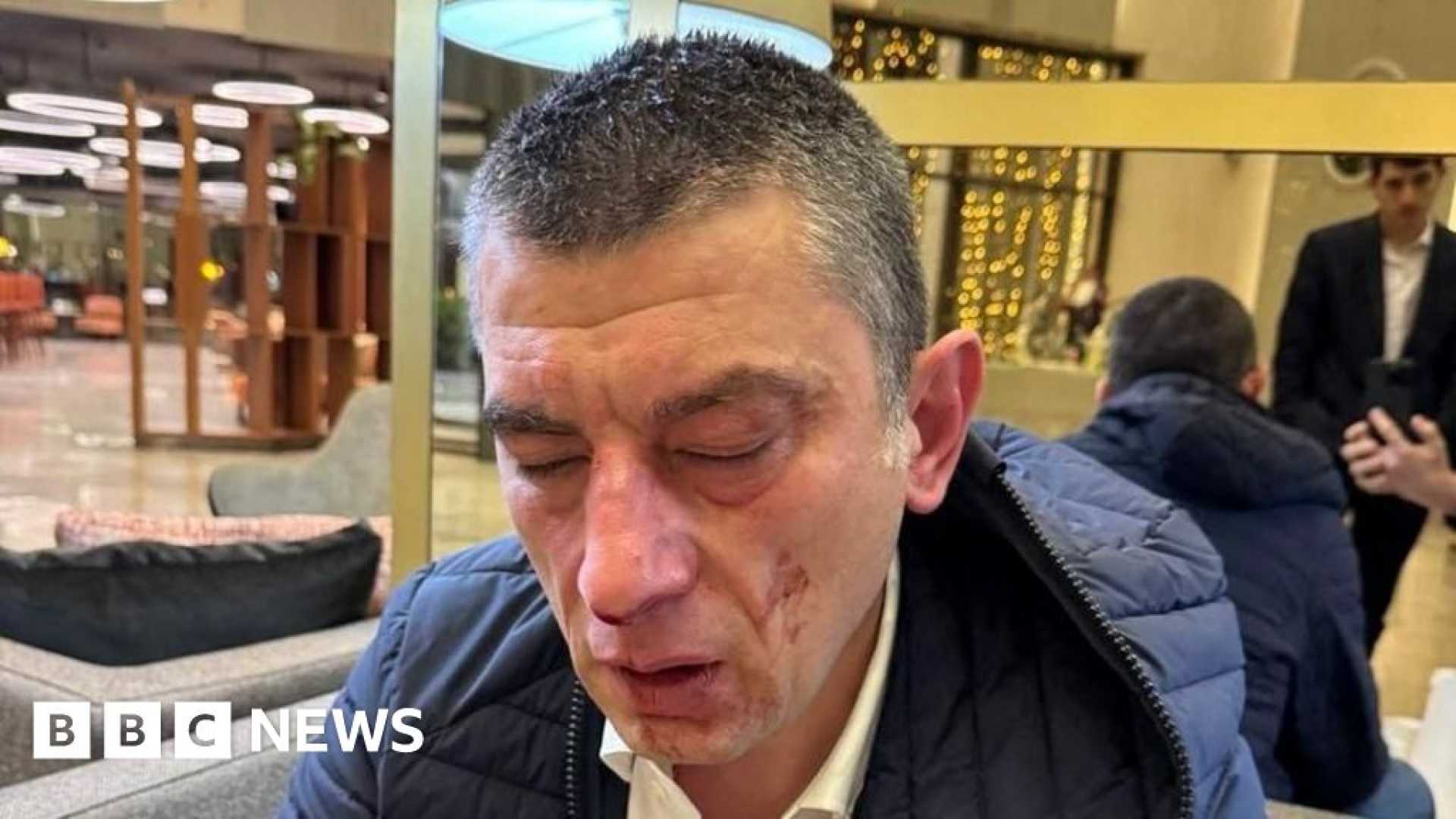Politics
Georgian Opposition Leader Hospitalized After Alleged Political Attack

BATUMI, Georgia — Former Georgian Prime Minister and opposition leader Giorgi Gakharia was hospitalized after being attacked in a hotel lobby late Tuesday, his party confirmed. The incident, which left Gakharia with a broken nose and concussion, has intensified the political crisis gripping the country.
Gakharia, leader of the For Georgia party, was assaulted by a group of men at the Sheraton Hotel in Batumi, a Black Sea coastal city. Video footage showed him being forced to the ground, with blood visible on his shirt. His party described the attack as a “politically motivated” act aimed at intimidating opposition voices.
The assault comes amid ongoing political turmoil in Georgia, sparked by contested parliamentary elections in October. Opposition groups, including For Georgia, have accused the ruling Georgian Dream party of rigging the vote. Protests have erupted nightly since November, when the government announced it would freeze talks on joining the European Union until 2028.
“This brutal, coordinated group attack is a blatant attempt to suppress dissenting voices,” For Georgia said in a statement. Gakharia, who served as prime minister from 2019 to 2021, posted on social media that he was “healthwise doing fine,” but his doctor confirmed he sustained a fractured nose and concussion.
The European Commission condemned the attack, with spokeswoman Anitta Hipper calling the reported involvement of Georgian Dream politicians “shocking.” However, Georgian Dream officials have denied responsibility, with MP Levan Machavariani claiming Gakharia initiated the clash.
The incident follows a pattern of violence against opposition figures and journalists. Nika Gvaramia, leader of the Coalition for Change party, was knocked unconscious during his arrest in Tbilisi last month. Journalist Zviad Koridze, regional head of Transparency International, was also attacked in Batumi shortly before Gakharia.
Georgia’s ombudsman, Levan Ioseliani, condemned the attacks, calling for an immediate response to prevent further violence. The UK and U.S. embassies in Tbilisi have also expressed concern, with British Ambassador Gareth Ward describing the situation as “deeply disturbing.”
Georgia’s political crisis has drawn international scrutiny, with the European Parliament calling for a re-run of the October elections, which it deemed neither free nor fair. The EU has accused the Georgian government of democratic backsliding and using repression against the opposition.
Gakharia’s party was one of four opposition groups that secured seats in the October elections, but all refused to take their seats, alleging electoral fraud. The ruling Georgian Dream party, founded by billionaire Bidzina Ivanishvili, has denied wrongdoing and accused opposition groups of spreading lies.
As protests continue, the situation remains volatile, with rights groups reporting hundreds of arrests and beatings. The Georgian Young Lawyers’ Association warned that “physical retaliation and the incitement of violence” have become part of the political landscape, exacerbating the country’s criminal situation.












